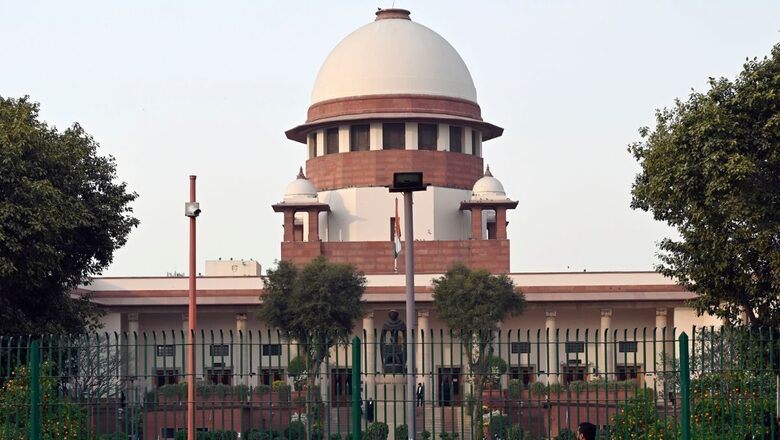
views
The Supreme Court on Tuesday directed Delhi and the other adjacent states to ensure that stubble burning is stopped to control rising air pollution. It also asked the Delhi Pollution Control Board Chairperson to look into the non-operation of smog towers in the national capital.
A single judge bench headed by Justice Sanjay Kishan Kaul was hearing a petition on the increasing air pollution in the national capital.
The Delhi government told SC that a comprehensive action has been carved out, adding that Stage-4 of the Graded Response Action Plan (GRAP) has also been enforced. The Commission for Air Quality management (CAQM) had given a report that they are hoping for zero burning, the advocate said adding that, in 2019 a thorough hearing on the matter had taken place wherein the Chief Secretaries had been called by the top court.
“The states have filed a response, why has these states not been able to control all of it?” asked the Delhi government lawyer. She said that it is a statutory failure of the states. In response, Justice Kaul asked for a solution, adding that, “Delhi can’t be made to go through this…”
Meanwhile, the advocate for Punjab in its statement said that the state has had 40 per cent reduction in crop fires, adding that “paddy was not Punjab’s crop rather it was brought in…”
Justice Kaul responding to the Punjab lawyer said that “this cannot be a political battle… Everyone cannot shift their hands… Delhi is facing health hazards.” While Punjab said that paddy was brought into the state, the Justice said that “Delhi State used to say Punjab, now since you’re in the same political sync, you say Haryana…but you will have to stop it.”
Justice Kaul pressed on the importance of putting an end to stubble burning, adding that sometimes it’ll have to be done by forceful actions and sometimes by incentives.
The Punjab government’s suggestion of forming a joint committee to look into curbing stubble burning was rejected by Justice Kaul, “These committees must end”, he said.
Suggesting solution to reduce air pollution, Punjab’s Advocate General said that farmers must be provided a Minimum Support Price (MSP) so that they can shift to other crops. ASG Aishwarya Bhati — appearing for the Centre — said that the burden cannot be shifted on Centre, to which Justice Kaul explained that since these states are in the same political dispensation, 25 per cent of the impact will be borne by Delhi, 25 by Punjab and the remaining 50 per cent will be borne by the Centre. “You will have to support them for an alternative crop,” Justice Kaul said to the Centre.
Crop fires must be stopped, Justice Kaul said, adding that the local SHO must be held responsible. On the apex court’s direction to suggest an alternative to paddy, Solicitor General Tushar Mehta said that Delhi government’s suggestion of a spray — which it had developed along with a scientific body — turns stubble into fertilisers. Mehta said that when this can come from the Delhi government, “why can’t Punjab do it?”
In response, while asking the states to stop the blame game Justice SK Kaul said, “This blame game between Delhi and Centre, Centre to Punjab and vice versa must stop.” The apex court also said that it wants all stakeholders to act promptly to the aforesaid action.
After recording the submission from the states, the top court delivered its order. To ensure the stoppage of crop burning — for which a meeting will be convened on Wednesday — it also said that the local Station House Officer (SHO) will be responsible under the overall supervision of Chief Secretary. In addition to this and non-operation of smog towers, it also directed the Delhi government to ensure that municipal solid waste (MSW) doesn’t burn openly. “We consider it appropriate that the chief secretary shall call a meeting of all the stakeholders.”
The apex court has scheduled the next hearing for November 10.
Pollution Curbs in Delhi as GRAP-IV Comes Into Force
The Stage 4 of the Graded Response Action Plan (GRAP) came into force in Delhi-NCR from Sunday. The restrictions in the stage 4 of the plan include a ban on diesel vehicles. Commercial four-wheelers, other than EVs/ CNG/ BS-VI diesel, have been banned from entering Delhi, except those carrying essential commodities/ providing essential services. State Governments and the Delhi government may also take decision on discontinuing physical classes and instead conduct online classes. Work from home is also included in the plan’s 8-point plan.

















Comments
0 comment